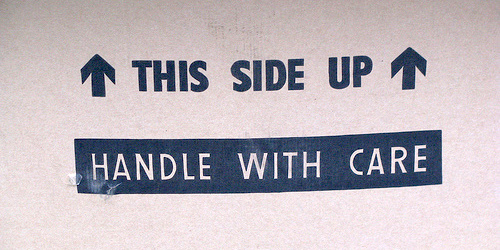While a balance transfer request may come with a temporary credit score ding (does a balance transfer hurt your credit score?), it could actually improve your credit score in the long term.
When you apply for new credit, whether it be a standard credit card or a balance transfer credit card, you are deemed a greater credit risk. That’s just how credit score providers like FICO see it.
The basic concept is that a consumer who needs credit is in a weaker financial position than those who are not in need of additional credit. Think of the person asking for a loan versus the person that has enough money to cover their expenses.
However, those who apply for credit sparingly shouldn’t see a dramatic shift in their credit score, and even if it does fall, the drop should be temporary.
[How a balance transfer appears on your credit report.]
How Can a Balance Transfer Improve Your Credit Score?
So you might be wondering how a balance transfer could improve your credit score?
Well, the main purpose of balance transfers is to reduce debt, or at least minimize or eliminate credit card finance charges.
This usually goes hand in hand with paying down debt, which should improve your credit utilization.
Credit utilization refers to the proportion of credit available to you that you’re actually using, and plays a major role in determining your credit score.
Essentially, the higher the balances and utilization, the lower the credit score. And the lower your credit score, the more you’ll pay in interest on various types of loans.
Credit utilization should be low – if it creeps too high, your credit score will suffer big time. Unfortunately, Americans continue to rack up credit card debt, and because credit card issuers have slashed credit lines and/or closed credit card accounts, folks are utilizing more of their credit.
Let’s look at an example:
Credit card limit: $10,000
Credit card debt: $8,000
Utilization: 80%
Reduce Credit Utilization with a Balance Transfer
In our scenario above, you’d be at 80% utilization, which is on the high side and will likely lower your credit score because you’re seen as close to maxing out. Credit card issuers don’t like that, nor do the credit score providers.
If you execute a balance transfer and move half of that debt to a new credit card, the credit utilization would fall to 40% on the old credit card, which is much more reasonable.
Over time, that lower credit utilization, coupled with the expectation that you’d pay down even more debt with the use of a 0% balance transfer, would probably boost your credit score.
Eventually when the total balance was paid in full, facilitated by the use of a balance transfer, your credit score would likely be significantly higher.
So you would ideally be free of high-APR debt and walk away with a much higher credit score. Not too shabby, eh?
In summary, a balance transfer could harm your credit score initially, but the long-term effect will likely be quite positive if the end result is a debt-free you. You’ll be awarded with a higher credit score and you won’t have any debt to worry about.
Read more: Credit score needed for a balance transfer?
